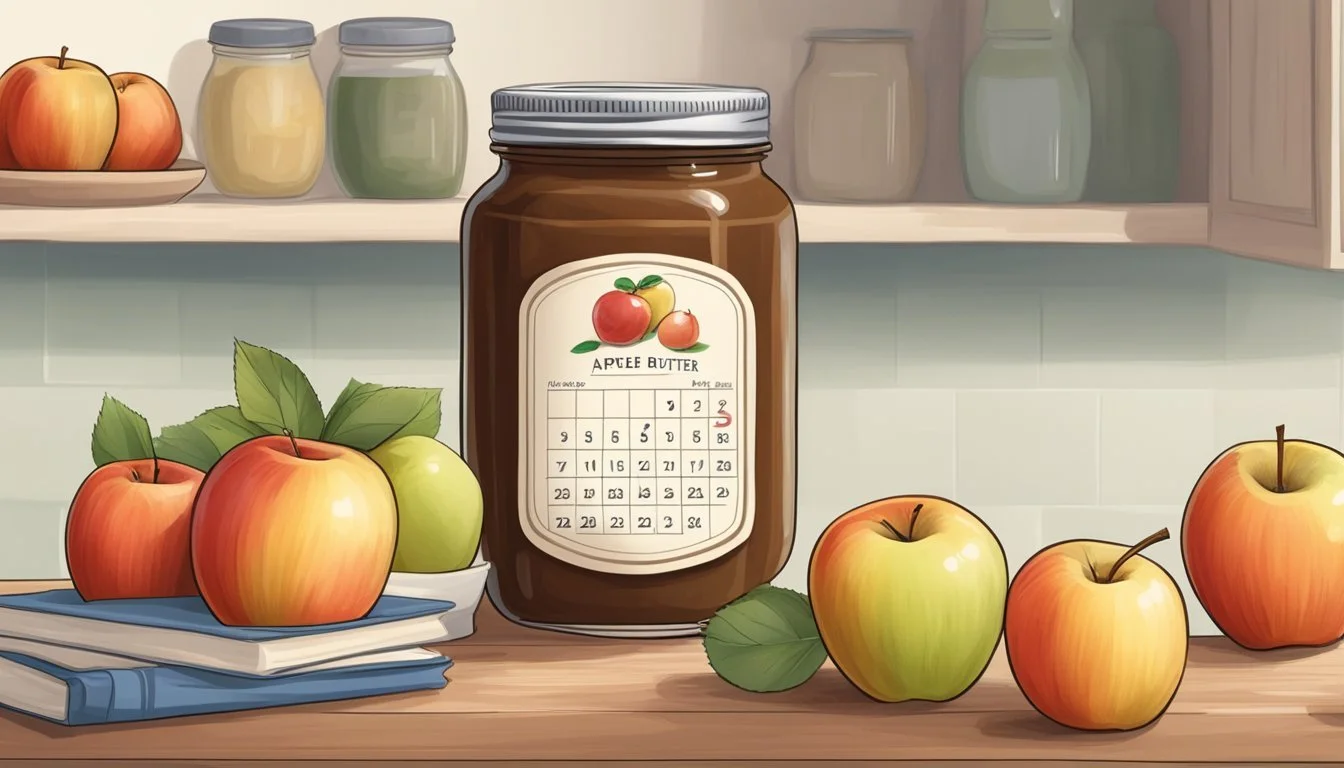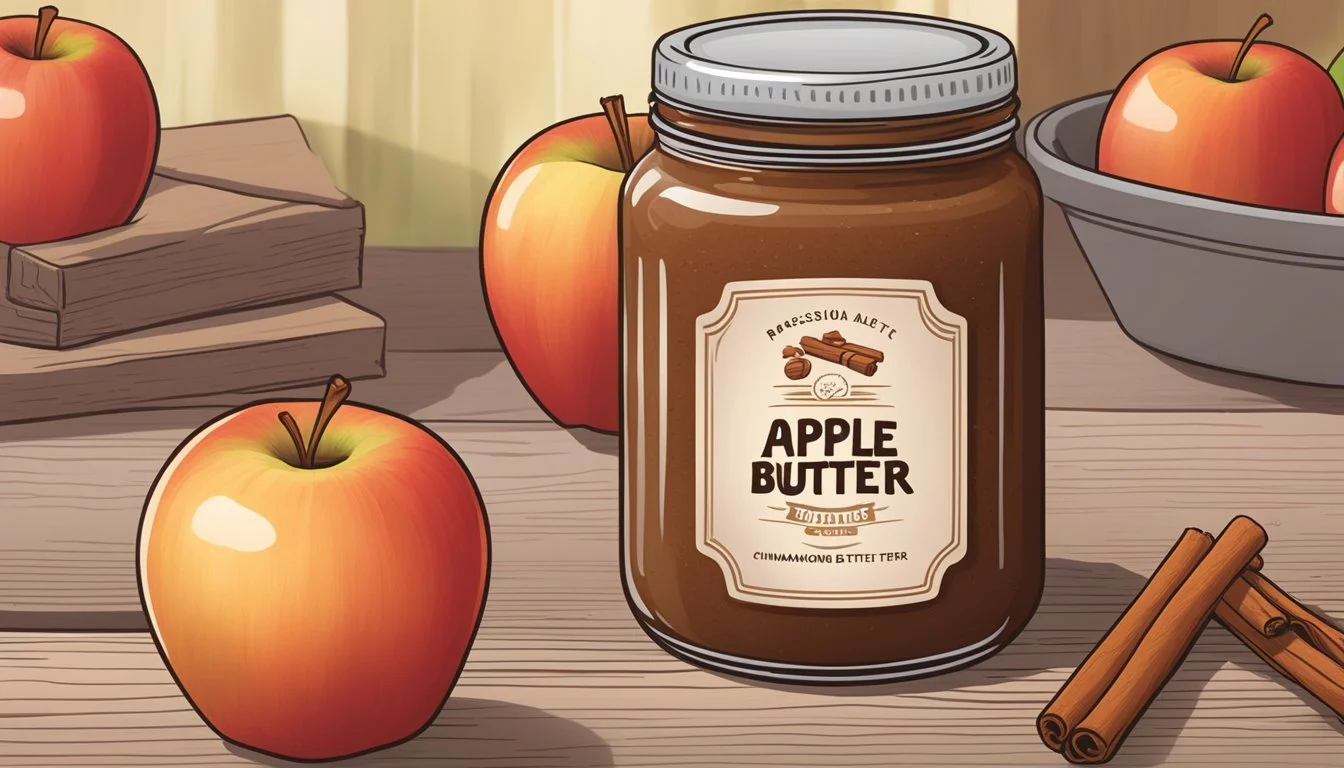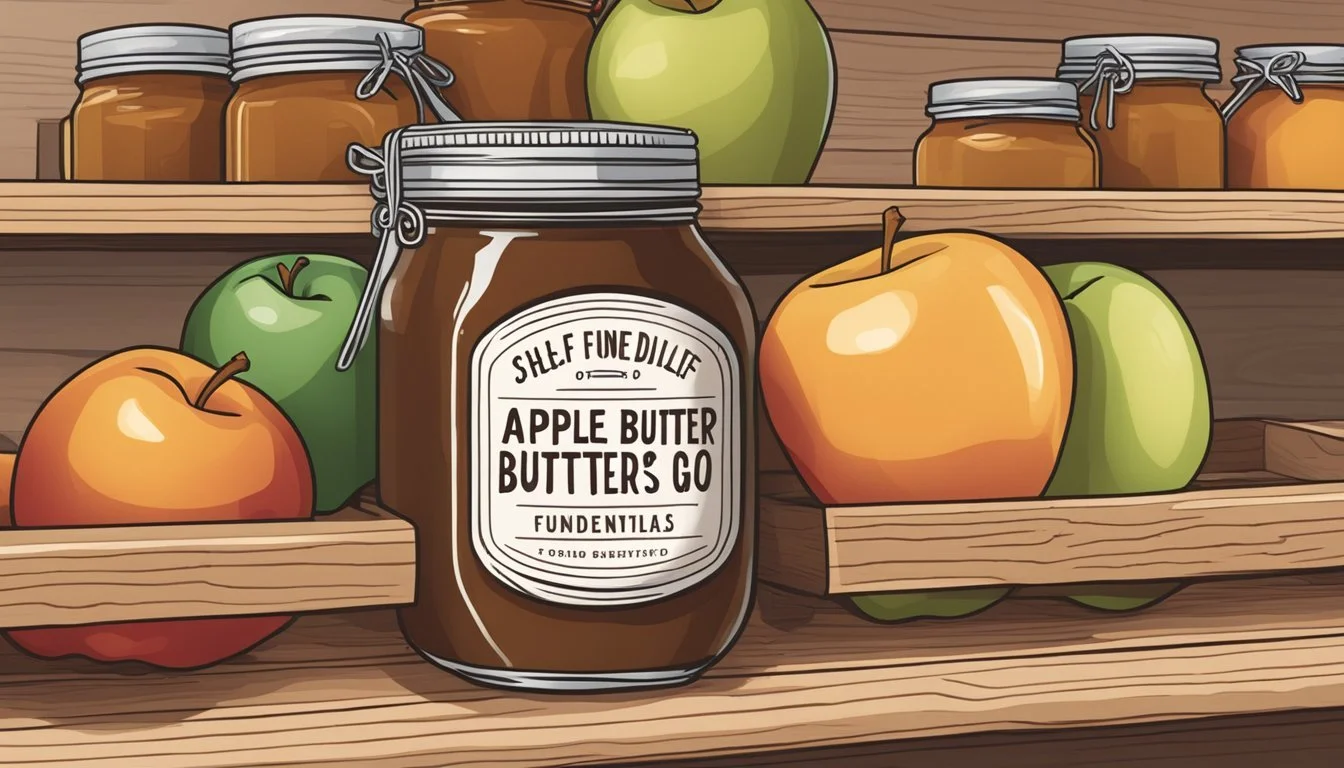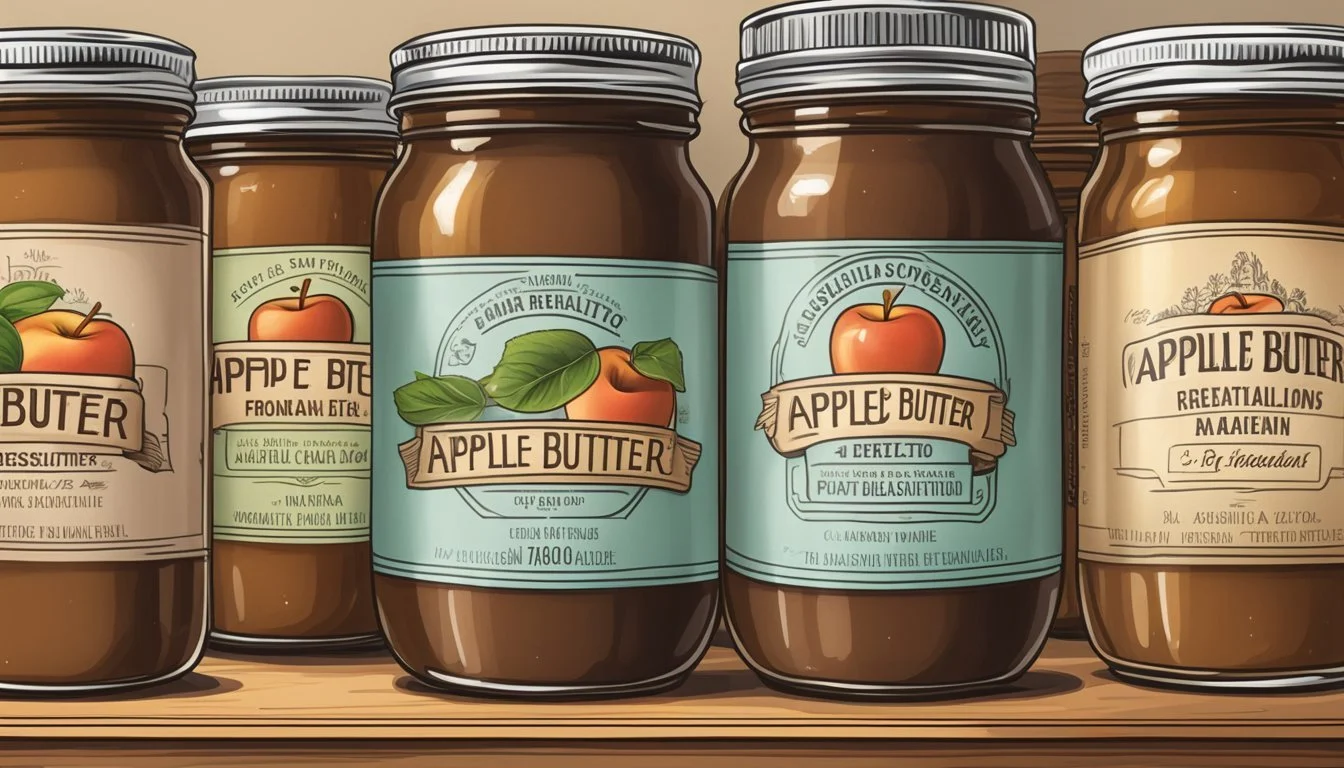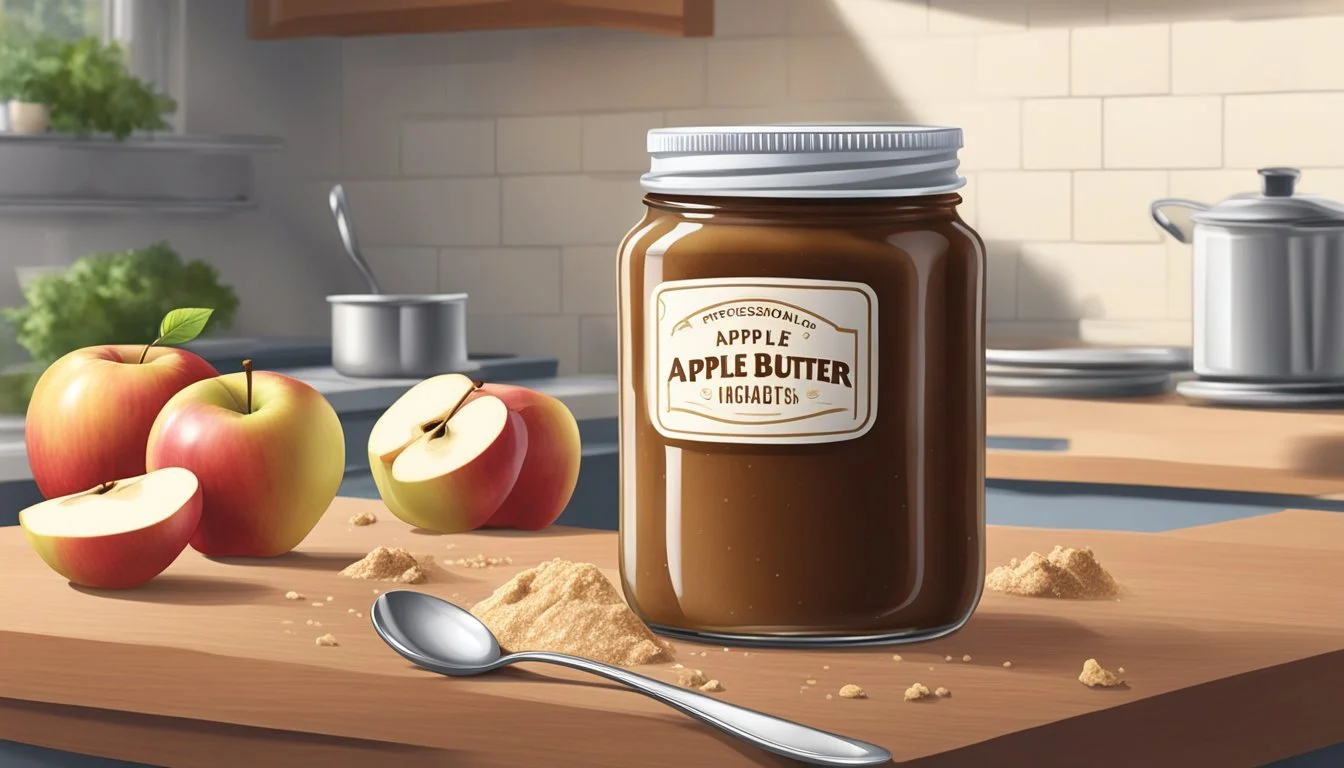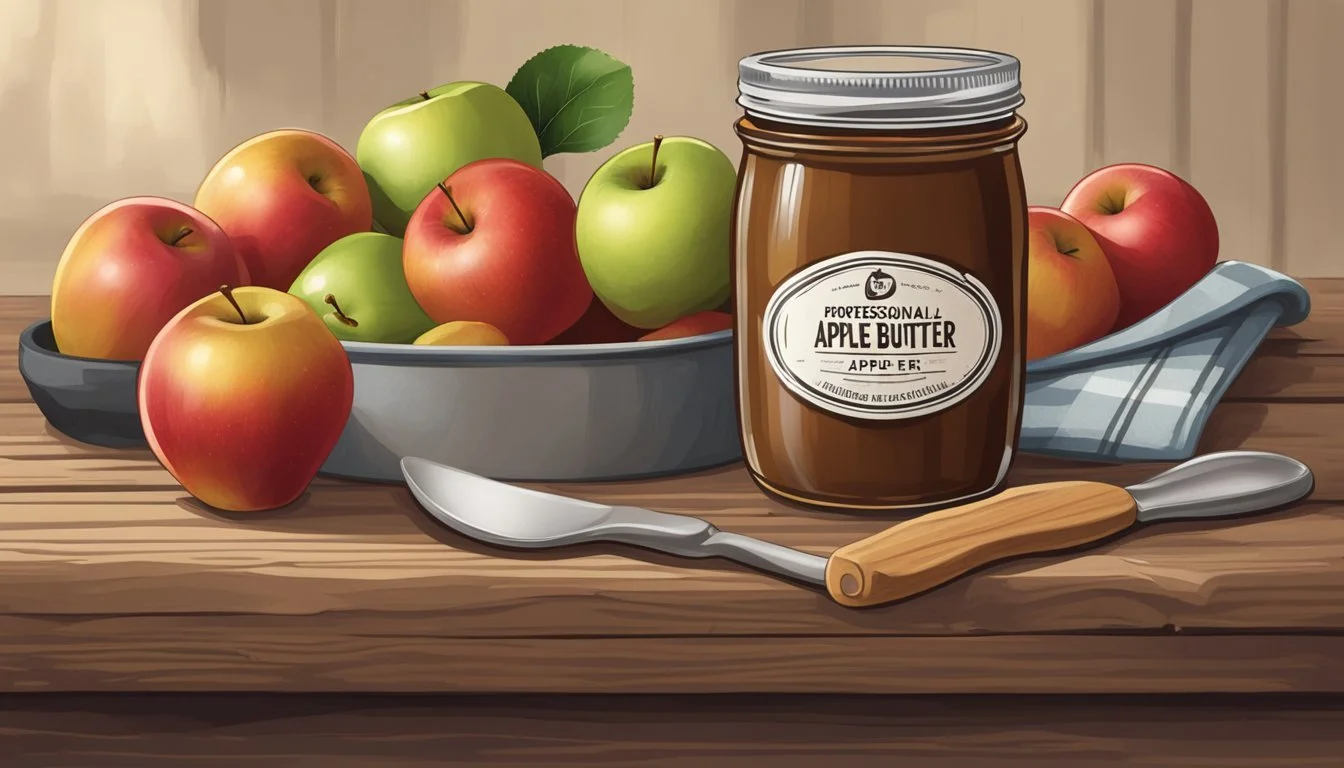Does Apple Butter Go Bad?
Understanding Shelf Life and Storage
Apple butter, a concentrated form of apple sauce, is renowned for its rich flavor and smooth texture. It's created by slow-cooking apples with sugar and spices until they become thick and caramelized. One of the essential aspects of food storage is understanding whether and when a product may spoil. In the case of apple butter, it's widely acknowledged that it has an extended shelf life, thanks to the sugar content and cooking process that help preserve it.
Unopened jars of apple butter, when stored correctly in a cool, dry place, have the potential to last for up to two years. The absence of air contact keeps the apple butter in a stable state, preventing spoilage for a considerable duration. Once opened, however, it should be kept in the refrigerator where it can maintain its quality for about six months. Proper storage is crucial after opening, as it safeguards against contamination and prolongs freshness.
Understanding Apple Butter
Apple butter is a thick, smooth spread made from apples that have been cooked down into a concentrated form. It is distinguished by its deep brown color and spiced flavor profile, often containing ingredients such as cinnamon and sugar.
History and Origin
The origins of apple butter trace back to the Middle Ages in monasteries of The Netherlands and Germany. Monks used apple butter as a means of preserving the fruit's nutrients through the winter. Over time, it became a staple in European and, later, American pantries.
Composition and Varieties
Apple butter is composed of apples, sugar, and a variety of spices like cinnamon, making it rich and aromatic. It comes in two main varieties: homemade apple butter, which may have a more variable texture and flavor, and store-bought apple butter, which typically has a more consistent quality. Both variants offer a taste that can range from tart to sweet.
Culinary Uses
As a culinary ingredient, apple butter is versatile, serving as a creamy spread on toast, bagels, and sandwiches. It also enriches the flavor of baked goods and can be a component in recipes for savory dishes, adding a subtle sweetness and depth.
Nutritional Value
In terms of nutrition, apple butter is a healthier alternative to many spreads due to its base of apples, which contribute fiber. However, some varieties may contain added sugar. When comparing homemade with store-bought, the homemade version often has less sugar and no preservatives.
Apple Butter vs. Apple Sauce
While both apple butter and applesauce are made from apples, apple butter is cooked longer, resulting in a thicker, more concentrated texture and deeper flavor. Unlike applesauce, which may contain chunks and have a more liquid consistency, apple butter is smooth and spreadable.
Shelf Life Fundamentals
In discussing the shelf life of apple butter, it is important to consider the impact of storage conditions and ingredient composition. This section explores the key factors in determining how long apple butter retains its quality before it goes bad.
Factors Affecting Shelf Life
Several elements influence how long apple butter can last before showing signs of spoilage:
Preservatives: Apple butter's sugar content acts as a natural preservative, extending its shelf life.
Temperature: Cooler temperatures slow down spoilage, making refrigeration an effective method to prolong shelf life.
Air Exposure: Limited exposure to air can prevent the growth of mold and bacteria, making proper sealing imperative.
Storage Conditions: A cool, dry, and dark environment helps in maintaining the freshness for longer periods.
Typical Shelf Life
Apple butter's shelf life varies depending on whether it's been opened:
Unopened: Typically lasts 1-2 years in the pantry, longer if refrigerated and up to 2 years in the freezer.
Opened: Generally safe for consumption if refrigerated for an extended period beyond the expiration date, with an optimal quality observed within the first few months.
Indicators of Spoilage
To determine if apple butter has gone bad, one should look for:
Appearance: A change in color can be a sign of spoilage.
Texture: Any alteration from its typically smooth consistency.
Odor: An off smell is an immediate indication that the apple butter should not be consumed.
Mold: The presence of mold, even if only on the surface, means the apple butter has spoiled.
Proper Storage Practices
Proper storage practices are essential for ensuring the longevity and safety of apple butter. Prioritizing conditions that limit bacterial contamination and preserve the quality of the apple butter is key to maintaining its shelf life, whether it's stored in the pantry, refrigerator, or freezer.
Before Opening
Unopened jars of apple butter should be stored in a cool, dark place, like a pantry. An ideal location maintains a consistent temperature, away from direct sunlight or heat sources, which can cause flavor and texture changes. Glass jars with airtight seals are preferred for maintaining a vacuum seal and preventing exposure to external contaminants.
After Opening
Once opened, apple butter should be kept in an airtight container in the refrigerator to reduce the risk of bacterial contamination. Refrigeration slows down the growth of bacteria significantly. Glass containers are often recommended due to their inert nature, which does not interact with the contents, thereby preserving the flavor and quality of the apple butter.
Extending Shelf Life with Freezing
Freezing extends the shelf life of apple butter by halting bacterial growth. It should be stored in freezer-safe containers allowing some space for expansion due to freezing. A vacuum-sealed container is also a viable option as it prevents freezer burn, thereby extending shelf life. When freezing apple butter, label the container with the current date to keep track of how long it has been stored.
Homemade Apple Butter Guidelines
Creating homemade apple butter involves careful preparation and storage to maintain its quality and safety. These guidelines offer specific steps for crafting and storing homemade apple butter and identifying when it is best enjoyed.
Crafting Homemade Apple Butter
One begins by selecting fresh apples and slowly cooking them down with ingredients like cinnamon and sugar until they reach a thick, spreadable consistency. A baker like Kimberly, who may be a self-taught enthusiast, can craft homemade apple butter without the use of commercial preservatives, often leading to a more natural, albeit less shelf-stable, product.
Storing Homemade Apple Butter
Proper storage is essential for extending the life of homemade apple butter. It should be stored in an airtight container, and for those who perform canning, vacuum-sealing may further preserve its freshness. Homemade apple butter should be kept in a cool, dark place such as a pantry before opening, and once opened, it must be refrigerated.
Pantry (unopened): Lasts typically for 12-18 months.
Refrigerator (opened): Remains fresh for approximately 2-3 weeks.
Freezer: May last for up to 12 months without significant quality loss, but ensure it is stored in freezer-safe containers, leaving room for expansion.
Freshness and Consumption
The freshness of homemade apple butter is a priority for both taste and safety. It's best consumed within two years for optimal quality. One should regularly check for signs of spoilage such as an off odor, discoloration, or mold. If these symptoms are present, it is necessary to discard the apple butter to prevent the risk of foodborne illness. Should consumption lead to symptoms like paralysis, one must seek immediate medical attention.
Store-Bought Apple Butter Considerations
When considering store-bought apple butter, shelf life, storage methods, and the appropriate time for disposal are paramount. These reflect a product's edibility and safety for consumption.
Preservatives and Shelf Life
Store-bought apple butter often contains preservatives to extend its shelf life. An unopened container, if vacuum-sealed and stored in proper conditions, can have a shelf life ranging from 1-2 years. While the product might remain edible beyond this period, quality can decrease over time. It's crucial to refer to the expiration date on the label as a general guide.
Handling and Storage
To maximize longevity, apple butter should be kept in a cool, dark place such as a pantry before opening. Once opened, it must be refrigerated in an airtight container. Proper handling includes using a clean utensil each time to prevent contamination. The combination of cool temperatures and reduced oxygen exposure after opening will help maintain quality.
Expiration and Disposal
If the expiration date has passed or if there are signs of spoilage such as an off odor or appearance, it is safer to discard the apple butter. Always exercise caution when consuming a product beyond its expiration date, even if it looks and smells normal. When in doubt about the edibility of the product, it is recommended to err on the side of caution and dispose of it responsibly.
Culinary Tips and Tricks
When incorporating apple butter into culinary creations, one can enhance both sweet and savory dishes with its rich, concentrated flavor.
Incorporating Apple Butter in Recipes
Sweet Treats: Apple butter serves as a versatile ingredient in baking. It adds moisture and depth to baked goods and can often substitute for fats like butter or oil in recipes.
Muffins and Breads: A tablespoon of apple butter can add a fall flair to these items, pairing well with spices like cinnamon and nutmeg.
Cookies: Substitute some of the sugar with apple butter to impart a subtle sweetness and chewy texture.
Savory Selections: Apart from its obvious uses in sweet dishes, apple butter adds a unique twist to savory dishes, contributing to the comfort and unity of the holiday season table.
Glazes: Mix apple butter with a bit of vinegar to create a glaze for meats or root vegetables.
Marinades: Apple butter can be used in marinades to tenderize and flavor meats, infusing them with a sweet and tangy essence.
Alternative Uses
Beyond traditional recipes, apple butter has several alternative uses that go beyond the spread on toast.
Sweetening Agent: Use apple butter to sweeten tea or oatmeal, as a healthier alternative to sugar or honey.
Condiment: It makes a flavorful addition to a cheese platter, pairing especially well with sharp cheeses.
FAQs and Troubleshooting
In this section, we'll tackle some frequently asked questions about apple butter, offer solutions if your apple butter isn't at its best, and share tips to prevent spoilage.
Addressing Common Concerns
Q: How do I know if my apple butter has gone bad? A: Look for signs of spoilage like mold growth, an off odor, discoloration, or a change in texture. If apple butter begins to take on a vinegary or overly tart taste, it may also be a sign that it is past its prime.
Q: Can I still use apple butter after the best-by date? A: Yes, if stored properly in a cool, dry place, unopened apple butter can last beyond its best-by date. Once opened, ensure it's kept refrigerated in an airtight container to extend its shelf life.
Repairing Compromised Apple Butter
Q: My apple butter has separated or has a watery layer on top; what can I do? A: If the apple butter has separated but shows no signs of spoilage, stir it to recombine. However, if there are signs of spoilage or an off smell, it's best to discard it.
Q: The texture of my apple butter isn't smooth anymore. Is it still safe to eat? A: Changes in texture do not necessarily mean the apple butter is spoiled. If there are no other signs of spoilage, such as mold or a bad smell, the apple butter should be safe to consume. However, texture changes might affect the mouthfeel or could indicate the beginning stages of spoilage, so proceed with caution.
Avoiding Spoilage and Waste
Q: How should I store apple butter to prevent spoilage? A: Store unopened apple butter in a cool, dry place, away from direct sunlight. Once opened, refrigerate it in an airtight container or freeze in a freezer-safe container to prolong its shelf life.
Q: What is the best way to can apple butter for long-term storage? A: Ensure you follow proper canning procedures, which typically includes using a water bath canning process and sterilized jars to seal the apple butter effectively. This will inhibit bacteria growth and preserve the quality and flavor.
Use these tips and knowledge to enjoy your homemade or store-bought apple butter safely and to minimize waste in your kitchen.
Conclusion
Apple butter enjoys a generous shelf life due to its preservation process. It maintains freshness for 12-18 months when unopened and stored in a cool, dry pantry. Refrigeration can prolong this period slightly. For optimal quality, consumption is recommended within 2 years.
Once opened, its shelf life diminishes but can still remain good for several months if refrigerated. To maximize longevity and retain freshness, one should ensure it is sealed tightly after each use.
To determine whether apple butter should be discarded, observe for changes in color, texture, and smell. Any signs of spoilage, such as an off odor or the presence of mold, indicate that it is no longer safe to consume.
In summary, proper storage is key to extending the life of apple butter, preserving its quality, and ensuring its safety for consumption. Dispose of apple butter that shows signs of spoilage to avoid potential foodborne illnesses.
Additional Resources
To further educate oneself on the shelf-life and proper storage of apple butter, several resources can be sought out:
Books and Food Preservation Guides: Many cookbooks and food preservation manuals detail the processes and timescales associated with various food storage methods.
Online Food Blogs and Forums: Websites dedicated to cooking and food preservation often have community discussions that can provide personal insights and tips on apple butter storage.
Government Food Safety Websites: Official resources such as the USDA’s Food Safety and Inspection Service provide guidelines on the safe handling and storage of foods, including canned items like apple butter.
The reader might consider these types of resources:
Resource Type Details Books Cookbooks, canning guides, food preservation Websites Blogs, forums, official food safety sites Institutions Extension services, culinary schools
Note: When seeking information, verifying the credibility of the source is essential to ensure accurate and safe advice is followed.

